Many children write to Santa during the holidays to share their wish list and to ask Old St. Nick to put them on the nice list. Every year, pets watch this letter-writing ritual, and wish they had opposable thumbs so they could write their own letter. Your pet may not be able to send a wish list to the North Pole, but Santa Paws has a special message he asked our Sixes Animal Hospital at Bridgemill team to deliver. You see, Santa Paws is concerned about your pet’s safety—as are we—and he wants pets to know that mischievous behavior can put them on the naughty list, potentially sending them to the emergency veterinary hospital.
#1: A pet who snatches the holiday feast
The abundance of delicious holiday treats can be difficult for your pet to resist, but if your four-legged friend steals food that’s not meant for them, they may wind up on the naughty list—or worse. Many holiday specialties can cause your pet serious health issues, so keep food out of their reach, and avoid sharing table scraps with them. Prevent your pet from eating these especially dangerous foods:
- Turkey — Turkey skin and dark meat are high in fat and can inflame your pet’s pancreas. A large, fatty meal, especially for pets unaccustomed to rich foods, is the most common acute pancreatitis cause. In addition, turkey bones—cooked or not—can splinter or lodge in your pet’s gastrointestinal tract, causing severe illness.
- Xylitol — This natural sweetener and sugar substitute is highly toxic to pets. Xylitol is used in many sugar-free desserts, candies, and cookies.
- Garlic, onions, leeks, and chives — These Allium plants—used to flavor many holiday dishes—can cause oxidative damage to your pet’s red blood cells, resulting in anemia.
- Unbaked yeast dough — Ensure you leave rising yeast dough well out of your pet’s reach. If your pet ingests unbaked yeast dough, the fermentation process continues in their digestive tract, and can cause alcohol poisoning. In addition, as the dough expands, your pet can experience dangerous bloating.
- Alcohol — A pet who ingests alcohol experiences the same side effects as humans, and can also develop dangerously low blood pressure, body temperature, and blood sugar.
#2: A pet who makes a run for it
Hosting a holiday party provides plenty of opportunities for a naughty pet to dash out an open door. When greeting guests, ensure your pet is confined to a bedroom or remains behind a baby gate to prevent them from rushing through the door and potentially becoming lost. Before the holiday festivities ensue, ensure your pet’s collar tags are up-to-date, which can hasten a reunion with your pet if they do get out and become lost. If your pet is microchipped, contact the manufacturer database to confirm your furry pal’s registration, and update your contact information. If your pet is not microchipped, schedule an appointment now with our Sixes Animal Hospital at Bridgemill team to perform this simple and quick procedure.
#3 A pet who climbs the Christmas tree
Climbing the Christmas tree may look like fun, but this behavior is a surefire way to land on Santa Paws’s naughty list. Your pet can easily pull down or push over your Christmas tree, so securely anchor the tree, and place it in a corner for added support to prevent it from falling, and possibly injuring your pet.
#4: A pet who snacks on toxic plants
A healthy pet eats their greens, but not houseplants, many of which—such as mistletoe and holly— are toxic. To prevent your pet from potentially being poisoned, check out the ASPCA’s Poisonous Plant Guide to learn which houseplants are toxic to cats and dogs. Choose pet-safe plants for decorating, and keep any potentially harmful plants out of reach. If your pet has ingested a toxic plant or is exhibiting toxicity signs, immediately contact our Sixes Animal Hospital at Bridgemill team, or call the ASPCA Pet Poison Control Center.
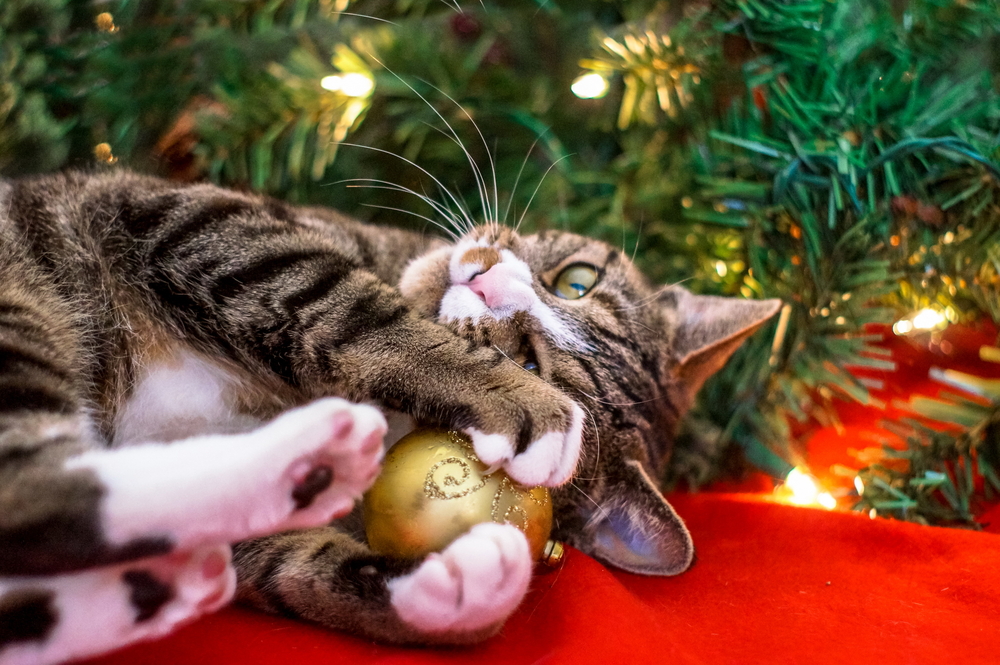
#5: A pet who plays with the decorations
To your pet, holiday decorations can look like fun toys, but ingesting them can be dangerous. Keep the following decorations out of your pet’s reach:
- Glass ornaments —A glass ornament can cut your pet, or cause an obstruction that may require surgical removal. Place all Christmas tree ornaments out of wandering paws’ and curious noses’ reach.
- Tinsel and ribbon — Ingested tinsel and ribbon can get bound up in your pet’s intestinal tract, causing a blockage—in some cases, cutting through the intestines. If you decorate with tinsel and ribbons, ensure you place these decorative items up high, out of your pet’s reach.
To deter your pet from stealing or chewing decorations, avoid placing ornaments and lights on the lowest Christmas tree branches.
To ensure your pet stays safe and keeps off the naughty list this holiday season, give them Santa Paws’s special message. However, if your pet gets in trouble during the holiday season, contact our Sixes Animal Hospital at Bridgemill team for guidance.

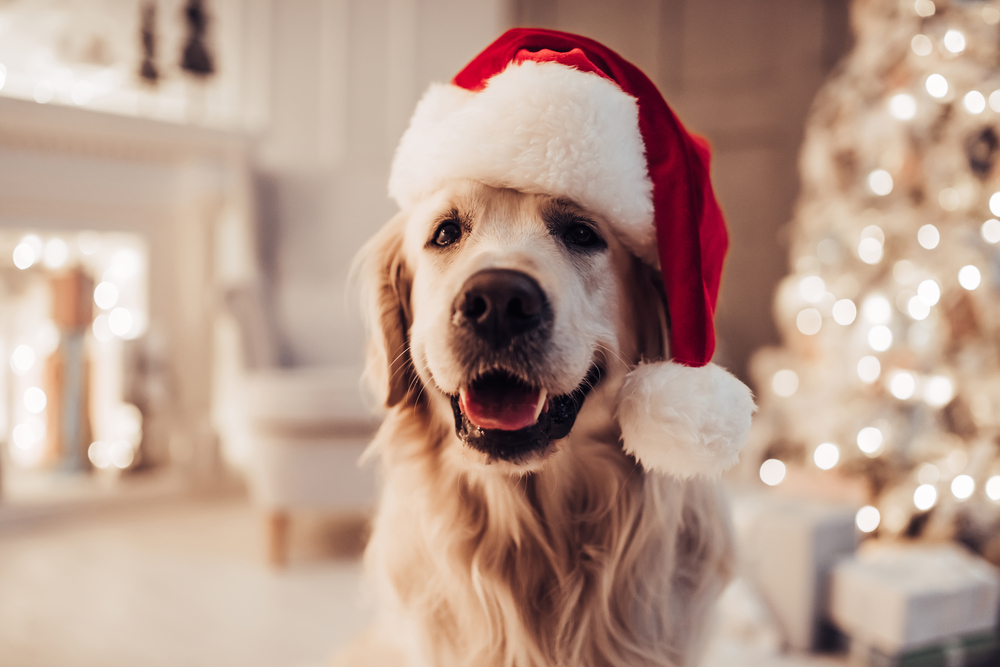

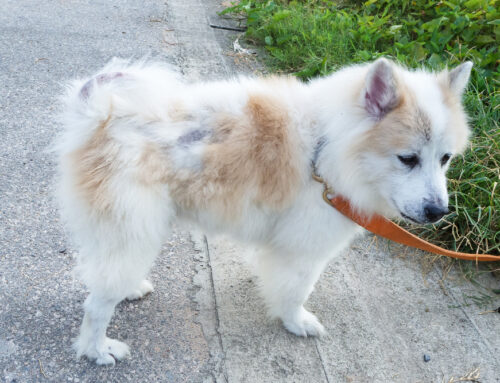
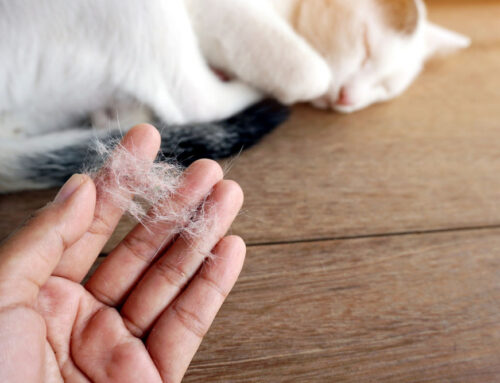
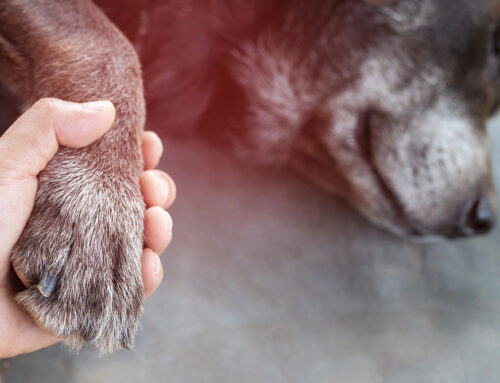
Leave A Comment